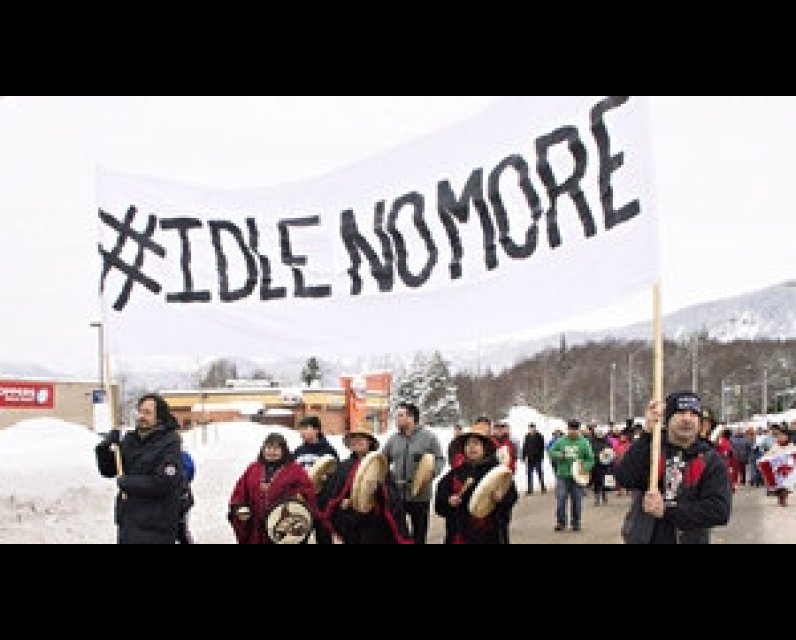Unpublished Opinions
Jan has lived in the Ottawa area for about ten years, and was a resident of Alberta for sixteen years prior to coming here. He is a wannabe renaissance man, with his art, penchant for endurance sports, skiing, travel and dabbling into political and other writings. He used to be a fairly serious poet at one point but the poetic vein has dried up. Jan works for Aboriginal Affairs Canada these days. He is also raising a wonderful little girl and finds her to be a big adventure on its own.
Environmental regulation and First Nations

Professional experience
Very few urban Canadians or southern Canadians have travelled to and spent time on the "Rez", as First Nations reserves are sometimes affectionately nicknamed.
If you had been to one, especially one up in the northern boreal belt, far from roads and perhaps one that is only seasonally connected to the rest of the country, you would have noticed one unpleasant feature: garbage often lying around, not disposed of properly. And not only that - many reserves do not, in practice, have a workable regime of disposing of waste, treating waste and exercising the comparative luxury choices of recycling and modern waste diversion. To be blunt, the makeshift landfills and impromptu waste sites on many a tribal land are on par with so- called Third World practices.
Reasons and root causes for this problem are many. For one, the regulation in force on FN's reserves is an outdated regulatory instrument that is not in line with equivalent provincial regulations on baste, and one that dates back to much simpler times of the 1970s. Technical and capacity-building requirements of the modern waste regulations are simply not in place here. The regulation is vague on many a point. And when things get out of hand and environmental law violations occur, the fines are puny - and mostly not enforced.
Broadly speaking, lack of environmental protection and low capacity for it are part and parcel of the under- development seen across First Nation communities in Canada. Since I work in this field, I can appreciate the political sensitivities around "doing the right thing". Neither the federal nor the provincial governments want to act in patronizing ways and tell the First Nation governments what to do. But what I see is that the governments are mostly working to minimize the environmental issues and trying to equip communities with some form of a more stringent approach...even to the mundane subject of waste. This is an example of the low key work by the federal bureaucracy which will have, at some point, concrete results and hopefully will usher in some much needed modernization.
Another complex, long-standing challenge for folks on reserves is education. To run a modern landfill, to operate a waste water treatment plant or to even manage big fuel storage facilities, a person needs some engineering and technical background, some hands on skills and also a modicum of knowing the law. Training and retraining needs to occur. Easier said than done when you live literally in the bush, in small communities that the more ambitious young people mostly leave. Homegrown expertise is hard to find in Attawapiskat, God's Narrows or Davis Inlet.
These are just some of the gaps that my department struggles to fill, with the help of other jurisdictions and contractors.
The work of improving conditions on reserve comes with a high price tag. If you have ever been on a smaller plane and flew north of Thunder Bay or up into northern BC, the flight costs alone start to approach overseas flights, or worse. Yet there are places on the Canadians landmass which rely almost solely on air for the delivery of crucial products and on seasonal ice roads for heavier cargo like construction materials. Locally sourced goods won't get you far. In real world, contractors who work up in this "near north" are few and far between, so it is not a traditional capitalist market; it can sometimes be a de facto monopoly of a few specialists. Which means normal economics don't apply. And seasons play havoc with accessibility, on top of the remoteness.
In practice, I have found fellow Canadians not very aware of the practicalities of how reserves are, in fact, governed. It is perhaps something that high schools and universities should teach in greater detail. Even those not interested in working for AANDc might appreciate knowing more about how our aboriginal brothers and sisters live and run their affairs, and what vicissitudes they face. Today, many a problematic stereotype persist about the native. Some are grounded in some truthful observations, most are just grounded in ignorance. I find Canadian intelligentsia are more open to and interested in talking about, for example, the problems in Haiti or Afghanistan, but tune out when the subject of our own poorest communities is brought up. What is notable is that I used to be exactly like these people...until my own career intersected with the lives of the aboriginal Canadians.



Comments
Be the first to comment